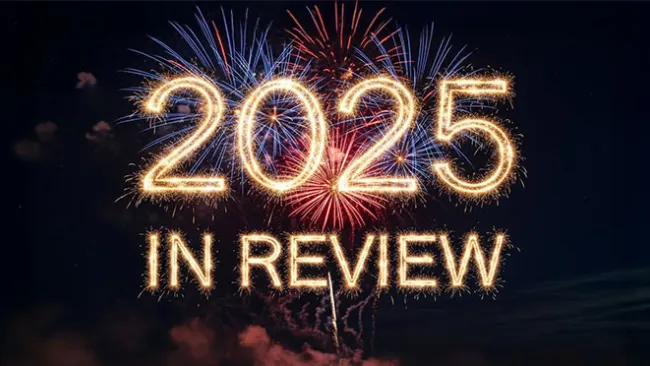Prior to the pandemic, most companies entered 2020 with modest to high growth goals. How have CEOs’ goals and priorities shifted in today’s new reality? Pete Hayes, CMO and principal at the consulting firm Chief Outsiders, shared insights from a recent survey his company conducted on where CEOs expect their businesses to be 6 months from now.
Key Takeaways:
- 67% of CEOs believe their companies still have a chance of hitting their original 2020 growth targets
- Company growth strategies include a combination of targeting new customers and markets, deploying new offerings, and ramping up digital marketing capabilities.
- CEOs recognize their success is will be determined by their organizations’ ability to execute plans with precision
Transcript:
Judith Aquino: Welcome to the CX Pod. I'm Judith Aquino and today I'm speaking with Pete Hayes, CMO and principal at the consulting firm Chief Outsiders about the expectations that CEOs have for rebounding during these uncertain times. Welcome to the show, Pete.
Pete Hayes: It's my pleasure to be here.
JA: So your firm conducted a survey in June, with more than 170 CEOs. Could you give me an overview of the companies and industries that you surveyed?
PH: We were reaching out to the types of companies that we typically help. And that’s technically in the mid-market and lower mid-market segment. These are companies with revenues from about $5 million and $10 million up to maybe $200 or 300 million in size from a broad range of industries, you know, from tech and retail to construction, SaaS, and healthcare.
JA: Great. And so, according to the survey, most of the CEOs saw economic conditions improving in December 2020 or later. What factors do you think influenced that prediction and will you be conducting follow up surveys to see if that estimate changes?
PH: That data point shows that most did think different things would be happening by six months out, so it's kind of the end of the year time frame, but almost the same amount of folks thought things would be improving sooner so it was a little bit of a split, but we do plan to come back to market after the third quarter to get a checkpoint. But the things that we asked later on in the survey itself, it looked as though that was their expectation related to several pretty you know understandable factors that you know what's going on with the COVID trends themselves in terms of infection rates and so forth.
And then how the economy is able to you know slingshot back which most CEOs are very optimistic about the economy. They came into this year, very optimistic about their own growth plans. In fact, they're very optimistic about having a pretty strong year even though you know economic forecasts, you know, were suggesting slower growth. So it looks as though you know companies are kind of split there, but those factors are the things that they're watching, not surprisingly.
JA: It’s really interesting given how quickly things develop and change.
PH: Yeah. We thought we were on a certain set of trends and you know it's disappointing in some regards, and yet you know some of the pure numbers are still, you know, the economy still seems to be trying to struggle through this, even though, infection rates, hospitalization rates, mortality—it’s very disappointing that we, you know, kind of slumped as a country. Even so, it'll be interesting to see how companies respond to that. We're not getting the sense that that they're hunkering down. They’re trying to find ways to get through it, rather than to wait.
JA: What other results did you find particularly interesting or surprising?
PH: There's a couple of areas of data points that are interesting and it has to do with the data sets that we collected. So if you'd like to get into that as it is kind of interesting because one of the data sets are our clients and the other data sets are about the CEOs at large, but in general, you know, digital readiness and digital marketing capabilities, not surprisingly, is very, very high on the list of things to attend to it, which is consistent with the advice that you know many people are providing, as well as CEOs, get it that customers are going to have to buy differently. So they have to provide more about support through their digital channels.
And companies are having to accelerate even areas of e-commerce that they weren't, you know, that wasn't on their priority list for right away, but even in the B2B space, what we're seeing is that companies are having to, you know, find ways of getting sales without a salesperson visiting the factory. So they're having to amp up their capabilities digitally.
JA: Right, as a field service salesperson, your job looks radically different.
PH: And you have to be supported differently so companies have to support their field people differently, but it's an opportunity to streamline a lot of that customer experience. People want to buy differently.
And as these things do accelerate, it can lower the cost of transactions for companies, if they're able to get the resources in place to execute on those strategic ideas they have about commerce and all things digital.
JA: I thought it was interesting, also about how 64% of the CEOs named execution position as an important factor in ensuring that they hit their new 2020 goals. Can you elaborate on why do you think that is, especially since companies at the same time are trying to be more nimble and adaptive moving forward?
PH: Yeah, I think it was, it was the timing and the data, which really was after the second or third pass that pulling insight that kind of left off the page. And that was, you know, after a triggering event, after COVID is looking better. And after economic indicators are looking better. After you get that trigger, that sign then everybody says my second priority is executing so it is a little bit of a surprise because we're I think we're always thinking that, you know, especially in this timeframe, companies are looking for ways to pivot, how to be different, how to find a new opportunity here there, shift their strategy, etc.
CEOs believe they've got that stuff. What they what they need help with or what they think about is their organization's ability to execute to get the stuff done that’s in front of them. So they're not searching for that magic answer, but literally can I get it done? And it was massive. So if you look at that second choice in terms of priority combined with the first choice, you know 70% range as you were saying, that's the biggest thing we have to do is execute, either to recover or capture new opportunity.
JA: At the same time CEOs are usually the visionaries, the ones with the big ideas, but it seems now they're really buckling down and as you said, getting things done.
PH: Yeah, it’s a little bit of a surprise. The way we were looking at the past couple of months, or the past six weeks, you know, our advice to CEOs is just recognize you're having to do, you know, five years of strategic planning in the next six weeks. And what seemed to resonate with this with the data from this research, is that, yeah. Okay. Yeah. Okay, there's a few things that we might want to check on and shift and, you know, the data also showed that they were you know largely looking at new markets, new offerings, making pricing changes and doing those things you can expect you would tweak and finesse.
But overall, they believe that their core strategies—most businesses, their core strategies for growth—are solid and they just have to get things done.
Judith Aquino: And so would you say that most CEOs are thinking in terms of long term changes or at the same time prioritizing the low hanging fruit?
PH: Most CEOs aren’t thinking that their long term prospects for long term strategies have been necessarily impacted as they are just trying to get through the headwinds of COVID and the economic challenges resulting so just trying to get through that headwinds. And then everybody says, well, it’s never going to be business as usual. Which is, you know, it's certainly true to some extent, but the fundamentals of the economy and the fundamentals of most businesses; some have been hurt you know forever and so deeply.
And some just had to learn they just have to do some things differently. Restaurants, for example, will never be the same. But in some ways, that’s really good. You know they modernized and digitized a lot of what they do for carry out and so forth.
But, you know, the majority of businesses are thinking we just have to, you know, execute to get through what we have in front of us to get going. So that suggests that it’s not a long term thing, but it also suggests there has not been a shift in their long term focus, but it's to get things done that they know they need to get done. So it's not it's not a new focus, if they if they have long term things that they're having to, you know, to, you know, turn their battleships to take new directions, those things will still have to happen, but this crisis has not caused most businesses to make some long term shift and I'll make one exception, other than accelerating your digital competencies.
Which certainly has long term implications, although the things that you can do right away and need to do right away just become more urgent.
JA: And do you have any research that shows which industries in particular are accelerating their digital strategies?
PH: We don't we don't have a cut in that regard. Our sense is you know, you know, we work with some thousand CEOs now in our business. So we have the experience of working with 1000 different CEOs across every industry sector you can imagine. What we're seeing is a little bit of a surprise to us is how perhaps lagging businesses in digital, such as generally and B2B maybe industrials, are recognizing that they have the opportunity to step up, it's going to impact, in fact, maybe even be an urgent requirement to get on top of to address their, you know their customer buyer journey. They don't use that language. You know how they're going to go sell to the folks out there, basically how they're going to market. They’ll have to revisit all that in order to utilize their resources like salespeople, as you mentioned earlier.
JA: What other trends, besides the acceleration of digital are you seeing accelerate?
PH: You know I mentioned earlier that we have these two data sets [and] what was very clear in this comparison was that companies that are learning how to be more market focused are able to be more aggressive, they're able to, they are in fact more aggressive in terms of attacking the markets, modifying their product offerings, making pricing adjustments and are more nimble.
You know, most companies and most companies’ CEOs are operationally oriented. We've got research that shows that and that's probably not new to anybody. Most CEOs, their number one skill set is running their business.
And that's different than growing their business. Most midsize companies or lower mid-market companies will have a marketing executive, for example, and so that falls on the CEO, but they tend to be much more operationally oriented.
In this timeframe, with all the dynamics that are happening. It’s kind of a hyper lesson in how to align yourself to market opportunities and be nimble and pivot, be agile and so forth, and companies that are equipped to do that are doing it better than companies where they don't have that muscle, right, they don't have that muscle in the organization, they're not used to watching market shifts tracking competitive moves, they’re not used to making pricing adjustments based on, you know, having some understanding of market segmentation and how their needs are changing or let alone delivering new products and services that are attacking the market.
So, there's, you know, different kinds of companies that have those skills and don't have those skill sets largely based upon the orientation of their leadership. That was a very long explanation, I hope it made some sense.
JA: It definitely did because it is fascinating to think that you have companies that only a few months ago didn't really have competitors or an incentive to innovate and now it's just a question of how quickly can they adapt.
PH: I think you're exactly right.
JA: What do you think that means for the customer? Could this be a win for customers in the long run?
PH: You know, it's a great question. I think it's a win for the customer on the foundation that businesses are having to pay more attention to what the customers’ needs are and how they've changed. And that just sounds like you know every other day of somebody saying, “well, you gotta watch what your customers are doing.” But in this case it's a meta customer, right. It's not just your customers. It's the marketplace and how those market dynamics are shifting. Am I still aligned? How is it different now than it was, let alone in March than with you know, two weeks ago and how can I begin to forecast what that's gonna look like and how am I going to respond differently?
So I think in that regard, the customer wins because the customer’s changing needs are going to be met, because people are having to pay attention to it. They’re hypersensitive to missing that opportunity and sometimes it's a question of survival of getting it right.
JA: Right. Yeah, that brings to mind case studies of companies, you know, like Kodak, that were too slow to move and now there are other companies that all of a sudden, they're in that risk category.
PH: That's right, and it came out of nowhere and so maybe something that was going to happen over time happened at a highly accelerated pace.
JA: And so, what would you say the key takeaways should be for leaders as they work on their own rebound plans?
PH: Yeah, so this is tough. As you mentioned earlier, you know, the plans that we were making just a few weeks ago we thought we had some time to figure it out, but it seems like it has moved again, at least from a COVID indicator standpoint, although economically the stock market is not a great indicator of economic health but it usually, usually leads economic results.
So, you know, everybody kind of scratches their heads, and says, what the heck's going on with the stock market, which is led by a lot of technology-based offerings, but I think the takeaway is that is that you can't be too agile.
Another takeaway is that you can't be too creative. It's not too late to still be searching for that big idea, that big blue ocean, kind of, you know, where might we might be. And the surprise might be, we might discover we have more time to develop it than we might have thought just a few weeks back.
So it's not too late to look for that major pivot, that major big idea and begin to get all the resources to take it on or at least experiment with it. So those are a couple things. And then lastly, execution.
The other thing we see very progressive companies doing is, this, this whole government assistance programs, especially the PPP law, has given many, many companies, a bit of a war chest. In other words, if for the companies where it was going to literally keep them from going under, that's one scenario. But for most companies that have qualified and deployed and are now in the process of ensuring their compliance and with their, you know, the majority of the loan can be forgiven because of salaries paid, and so forth.
Most of those companies are in a financial position to make investments and whether that's capital equipment from a growth standpoint or even a go-to-market investment. And it's a little too early to see it happen because no one's willing to deploy what could be a very important path to get through, you know, the next six months or whatever we think the period of time is when things will need to hunkered down again.
But most companies are going to find themselves in a position to make an investment and we do believe and history seems to reward the bold. And so those that recognize that this is an opportunity to be more visible, more clear more, and more visibly aligned to those shifts in their marketplaces for their business, we believe will be rewarded. And so, you know, the message is don't hold back.
JA: That's really fascinating considering if we compare this to what companies were doing in the Great Recession, where there didn't seem to be that much investment in new business versus just holding on to the cash.
PH: Yeah, that's an important thing to remember. The Great Recession was an economic problem. And so getting through that required some basic things in the economy, obviously, especially in financial sectors, to get healthy again. And so we had to get through that.
The difference here is our economy and the global economy is generally very healthy. And so once the rest of the health thing is figured out…If you see the numbers in potential discretionary spending for consumers, savings rates are up. So there's cash to be deployed. I mean, heck, look at private equity. It’s got more than a trillion dollars of uninvested capital just waiting to find the right companies to invest in. The economy is very, very healthy, once we get through the problem. Once we get on the other side of this thing.
JA: Well, Pete, thanks so much for all the insights. I really enjoyed our conversation.














